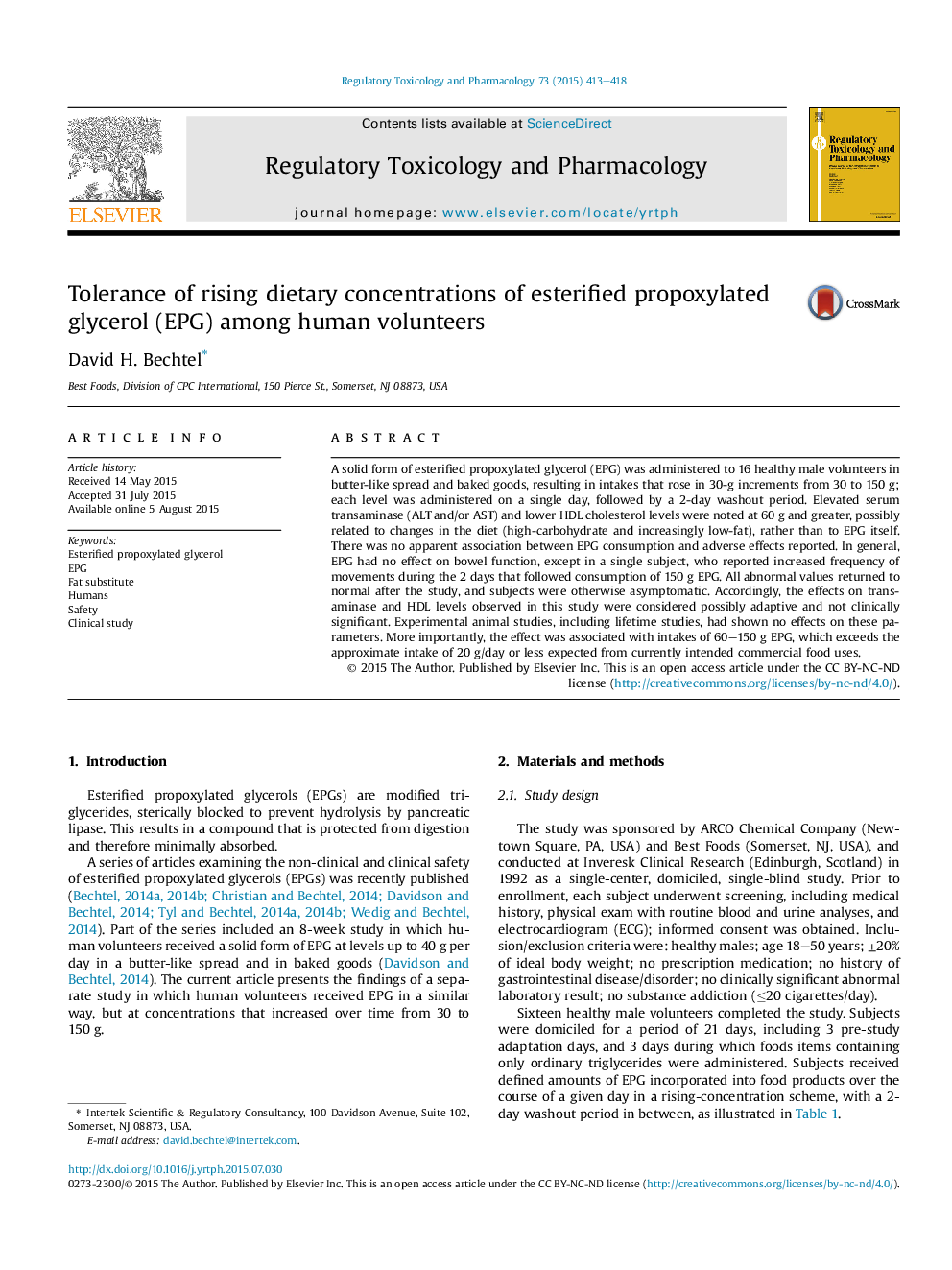| Article ID | Journal | Published Year | Pages | File Type |
|---|---|---|---|---|
| 5856364 | Regulatory Toxicology and Pharmacology | 2015 | 6 Pages |
A solid form of esterified propoxylated glycerol (EPG) was administered to 16 healthy male volunteers in butter-like spread and baked goods, resulting in intakes that rose in 30-g increments from 30 to 150Â g; each level was administered on a single day, followed by a 2-day washout period. Elevated serum transaminase (ALT and/or AST) and lower HDL cholesterol levels were noted at 60Â g and greater, possibly related to changes in the diet (high-carbohydrate and increasingly low-fat), rather than to EPG itself. There was no apparent association between EPG consumption and adverse effects reported. In general, EPG had no effect on bowel function, except in a single subject, who reported increased frequency of movements during the 2 days that followed consumption of 150Â g EPG. All abnormal values returned to normal after the study, and subjects were otherwise asymptomatic. Accordingly, the effects on transaminase and HDL levels observed in this study were considered possibly adaptive and not clinically significant. Experimental animal studies, including lifetime studies, had shown no effects on these parameters. More importantly, the effect was associated with intakes of 60-150Â g EPG, which exceeds the approximate intake of 20Â g/day or less expected from currently intended commercial food uses.
